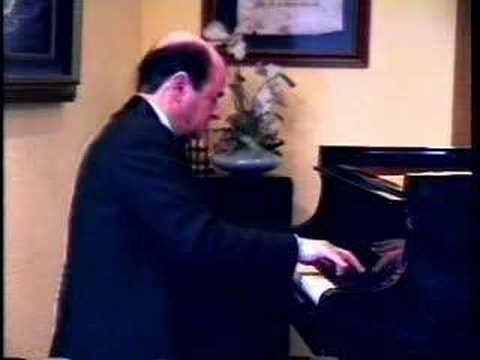About
Rami Bar-Niv (Hebrew: רמי בר-ניב; born December 1, 1945 in Tel Aviv, Israel) is an Israeli pianist, composer, author, and instructor of master classes.
Bar-Niv is a graduate of the Rubin Academy of Music in Tel Aviv, where he studied piano with Karol Klein and composition with Paul Ben-Haim, Alexander Boskovitch, and Ödön Pártos. He won a grant from the America-Israel Cultural Foundation in 1966 to continue his studies at Mannes College of Music in the United States, where he studied with Nadia Reisenberg and with the theorist Carl Schachter. During the summer of 1968 Bar-Niv studied with duo pianists Vronsky & Babin. In 1970 William Gunther asked Rami Bar-Niv to replace him in the First Piano Quartet.
Bar-Niv has performed in concerts worldwide. In 1974 he performed Mozart's Piano Concerto No. 23 with the Israel Philharmonic Orchestra, conducted by Paul Paray. He presented a series of violin and piano recitals with Shlomo Mintz in Israel, and has performed extensively with various chamber ensembles in Israel and abroad.
He was the first Israeli musician to perform in Egypt after the 1979 peace treaty with Israel and in 1989 received the annual "Best Performer Award" from the Israeli government.
Bar-Niv's compositions have been published by the Israel Music Institute, Israel Music Publications, and Or-Tav Publication.
In 2012 Bar-Niv published his first book The Art of Piano Fingering – Traditional, Advanced, and Innovative

